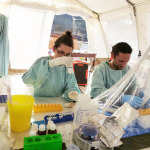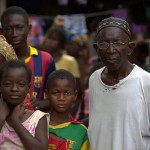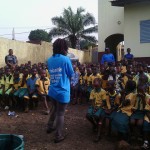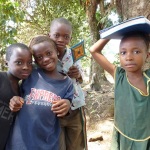A component of the Ebola epidemic control policy in Sierra Leone is triage and isolation in decentralised Community Care Centres (CCCs) or Holding Units, from where transfer to Ebola treatment units (ETUs) is arranged for those diagnosed as positive. The epidemic is currently waning, there are sufficient beds in the ETU, yet new micro-epidemics emerge, raising questions about the future role and relevance of the CCC. This briefing summarizes the preliminary findings of a formative evaluation conducted by the UK based Ebola Response Anthropology Platform
Continue reading →
Informal health workers are important care providers in the region and continue to be so during the current Ebola Virus Disease (EVD) outbreak. Many are well respected and trusted members of the community who can mobilise large numbers of people for a particular activity and lend legitimacy to a particular programme.
‘The Ebola epidemic ravaging parts of West Africa is the most severe acute public health emergency seen in modern times. Never before in recorded history has a biosafety level four pathogen infected so many people so quickly, over such a broad geographical area, for so long’ (Margaret Chan, 26th September 2014, WHO). This report focuses on the local beliefs and practices around illnesses and death, the transmission of disease and spirituality, which affect decision-making around health-seeking behaviour, caring for relatives and the nature of burials.
Continue reading →
Held as part of the African Studies Association conference 2014, Ebola: The Challenges united an esteemed panel of speakers to discuss ways in which academia can mobilise to support those effected by the ebola outbreak.




